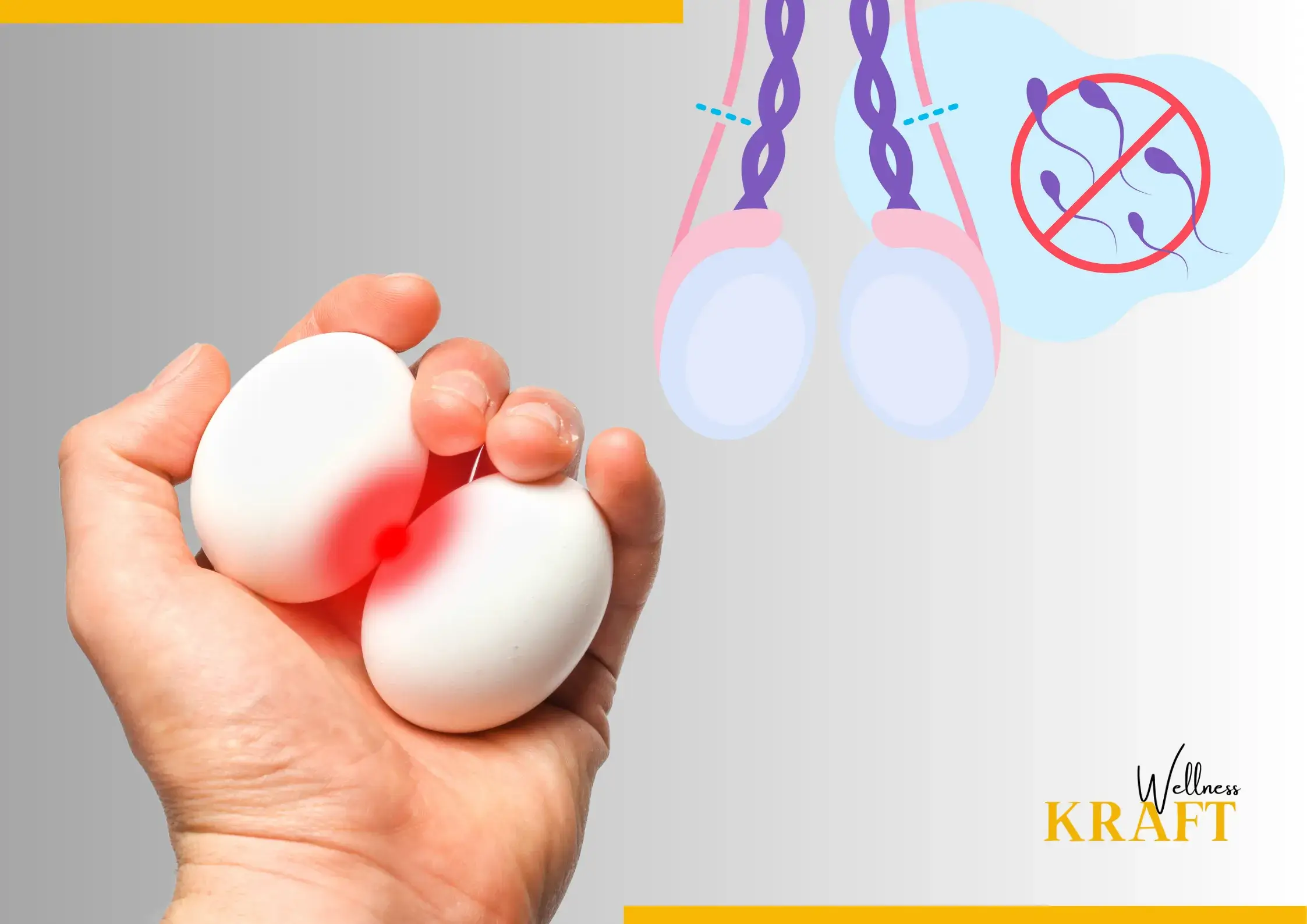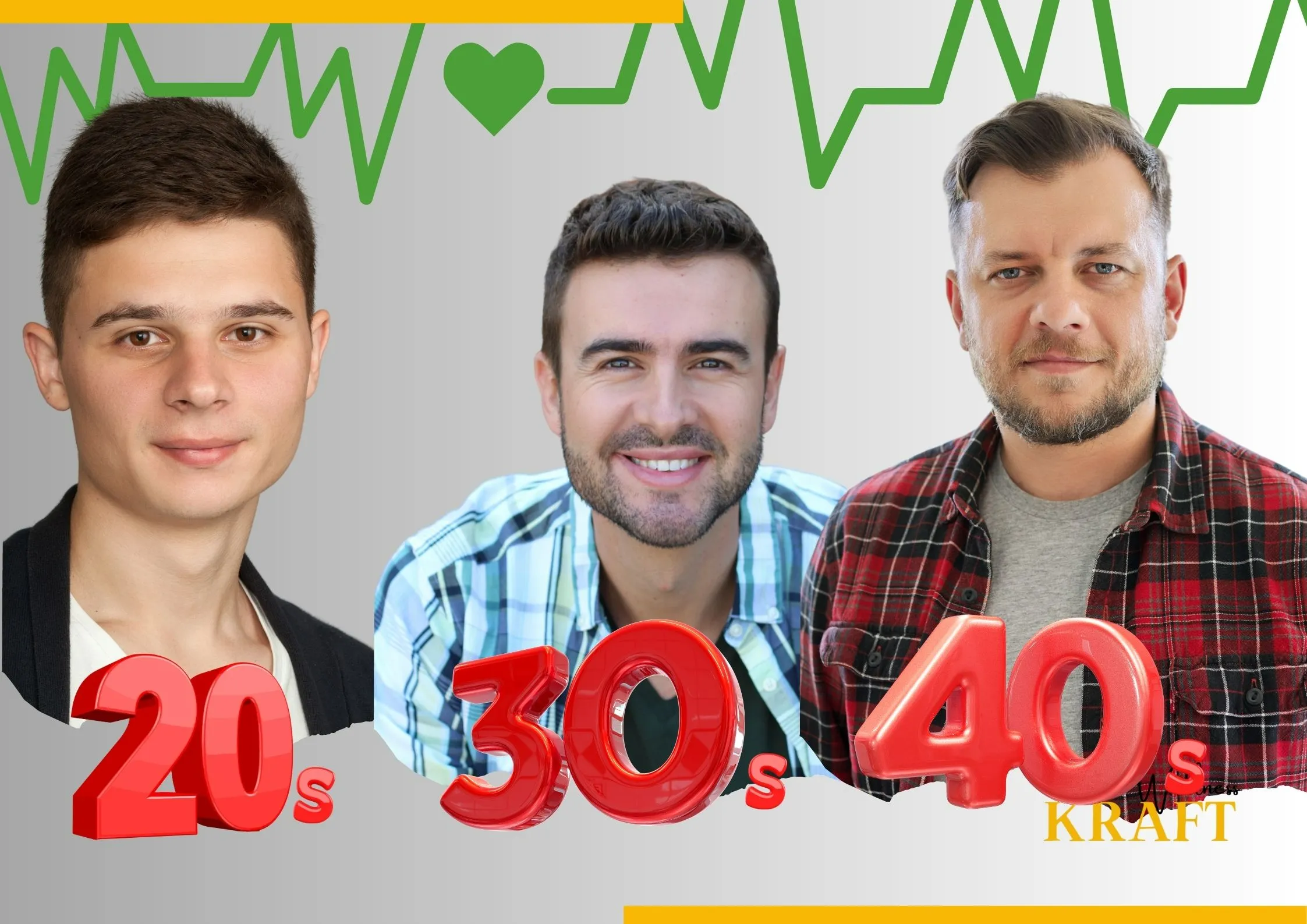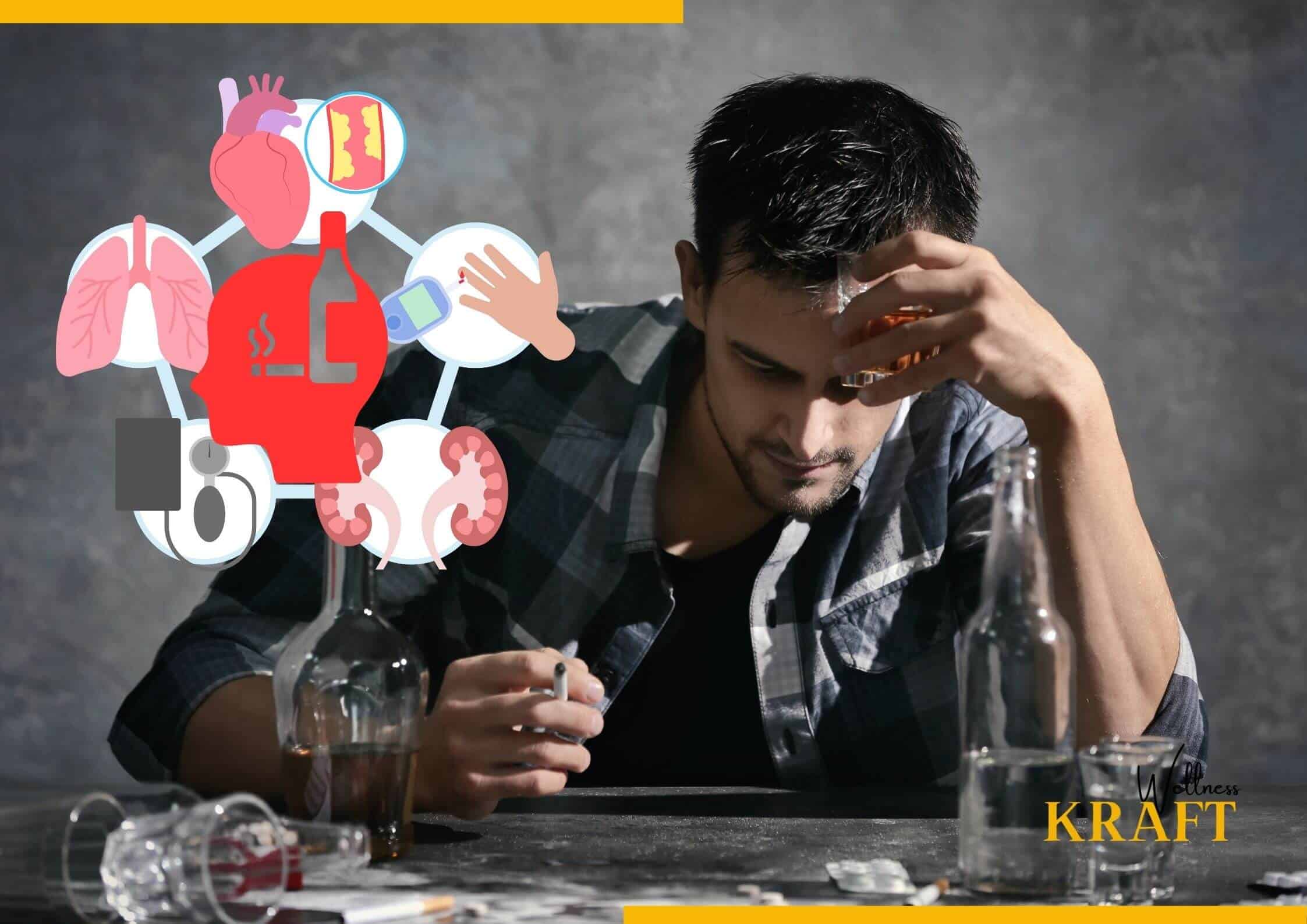“Each hormone, like an instrument in a symphony, is essential to the creation of a harmonious whole and the maintenance of good health.” – Wellness Kraft
Table of Contents
Introduction
Testosterone is an androgen hormone that is primarily produced in men’s testicles and, to a lesser extent, in both men’s and women’s adrenal glands. It plays a crucial role in men’s health, including the development of secondary sexual characteristics during puberty, the maintenance of sexual function, and the promotion of muscle growth and bone density.
The male endocrine system includes several organs and glands that produce and secrete hormones, including the hypothalamus, pituitary gland, testes, and adrenal glands. The hypothalamic-pituitary-gonadal (HPG) axis is the main hormonal pathway that regulates testosterone production and secretion in males.
Understanding it’s role in male health and the mechanisms that regulate its production is important for identifying and treating conditions that may result from hormonal imbalances or deficiencies.
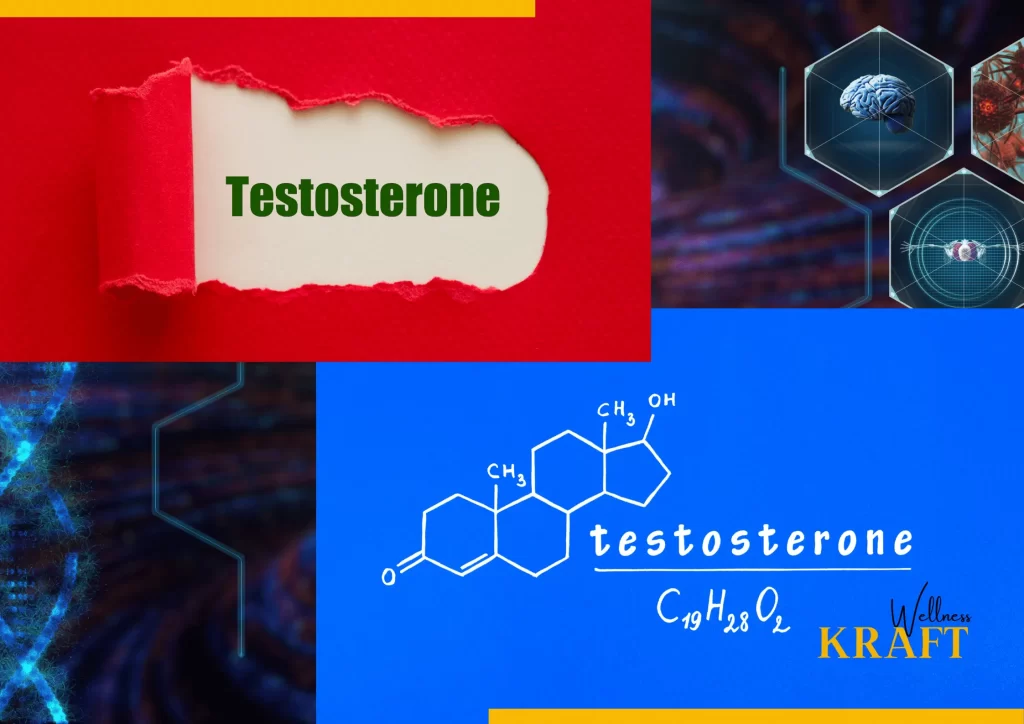
Definition:
Testosterone is a hormone that belongs to the class of androgens and is primarily produced in the testes of males and, to a lesser extent, in the adrenal glands of both males and females. It is a steroid hormone that plays a critical role in male development and health, including the development of primary and secondary sexual characteristics during puberty, the maintenance of male sexual function, and the promotion of muscle growth and bone density. It is also involved in several other physiological processes, including the regulation of mood, cognitive function, and metabolism. Its effects are mediated by binding to androgen receptors in various body tissues.
Importance :
It plays a critical role in male health and well-being. During puberty, it is responsible for the growth of face and body hair, a deeper voice, and more muscle mass. It is also very important for men’s sexual health. It helps men grow and keep their sexual desire, keeps their erections working, and makes sperm.
Beyond sexual function, It is essential for promoting muscle growth and bone density, which helps to maintain strength and overall physical function. It also has effects on mood and cognitive function, with low levels being associated with symptoms such as fatigue, decreased motivation, and poor concentration.
Low levels of testosterone can have significant impacts on male health and may lead to conditions such as hypogonadism, erectile dysfunction, decreased muscle mass and bone density, and a higher risk of cardiovascular disease and metabolic disorders. Understanding the importance in male health can help individuals identify and treat hormonal imbalances or deficiencies that may impact their health and well-being.
Overview of the male endocrine system
The male endocrine system consists of several organs and glands that produce and secrete hormones to regulate various physiological processes. The hypothalamus, located in the brain, produces gonadotropin-releasing hormone (GnRH), which stimulates the pituitary gland to produce and release luteinizing hormone (LH) and follicle-stimulating hormone (FSH).
In males, LH acts on the Leydig cells in the testes to stimulate the production and secretion of testosterone, while FSH acts on the Sertoli cells in the testes to support spermatogenesis. The testes are the primary site of it’s production in males, although small amounts are also produced in the adrenal glands.
It exerts its effects by binding to androgen receptors in various body tissues, including the muscles, bones, and reproductive organs. In addition to its role in sexual development and function, It also plays a role in regulating mood, cognitive function, and metabolism.
Other organs and glands that play a role in the male endocrine system include the thyroid gland, pancreas, and adrenal glands. The thyroid gland produces thyroid hormones, which regulate metabolism and energy levels, while the pancreas produces insulin, which regulates blood sugar levels. The adrenal glands produce several hormones, including cortisol, which regulates stress response, and adrenaline, which is involved in the fight or flight response.
Testosterone production and regulation
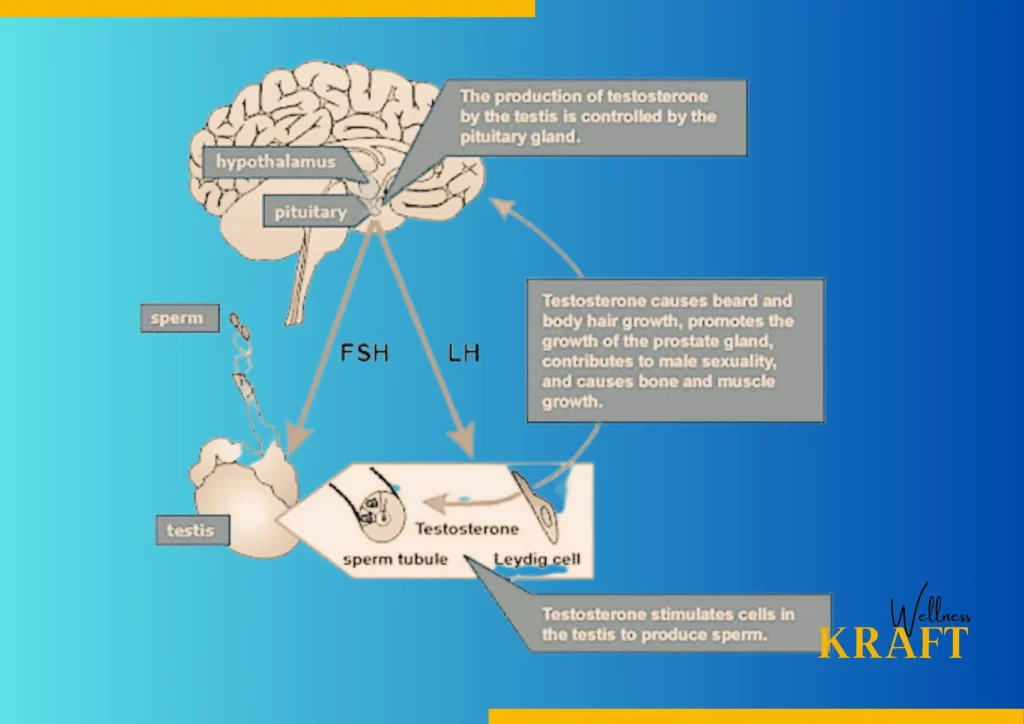
It’s production is regulated by a complex feedback loop involving several organs and hormones. The hypothalamus in the brain releases gonadotropin-releasing hormone (GnRH), which stimulates the pituitary gland to produce luteinizing hormone (LH) and follicle-stimulating hormone (FSH).
LH, in turn, stimulates the Leydig cells in the testes to produce and secrete testosterone. It then acts on the hypothalamus and pituitary gland to inhibit the release of GnRH and LH, respectively, in a negative feedback loop.
It ‘s production is also influenced by other hormones, such as cortisol, insulin, and thyroid hormones. Cortisol, which is produced by the adrenal gland in response to stress, can inhibit the production of testosterone. Insulin, which is produced by the pancreas to regulate blood sugar levels, can stimulate it’s production. Thyroid hormones, which are produced by the thyroid gland, can also influence it’s production by modulating the sensitivity of the Leydig cells to LH.
It production can be disrupted by various factors, such as aging, disease, injury, and certain medications. In cases of hypogonadism or low testosterone levels, hormone replacement therapy may be prescribed to supplement or replace testosterone production. Understanding the complex regulation of it’s production is essential for identifying and treating hormonal imbalances and deficiencies.
Anatomy of the Testes
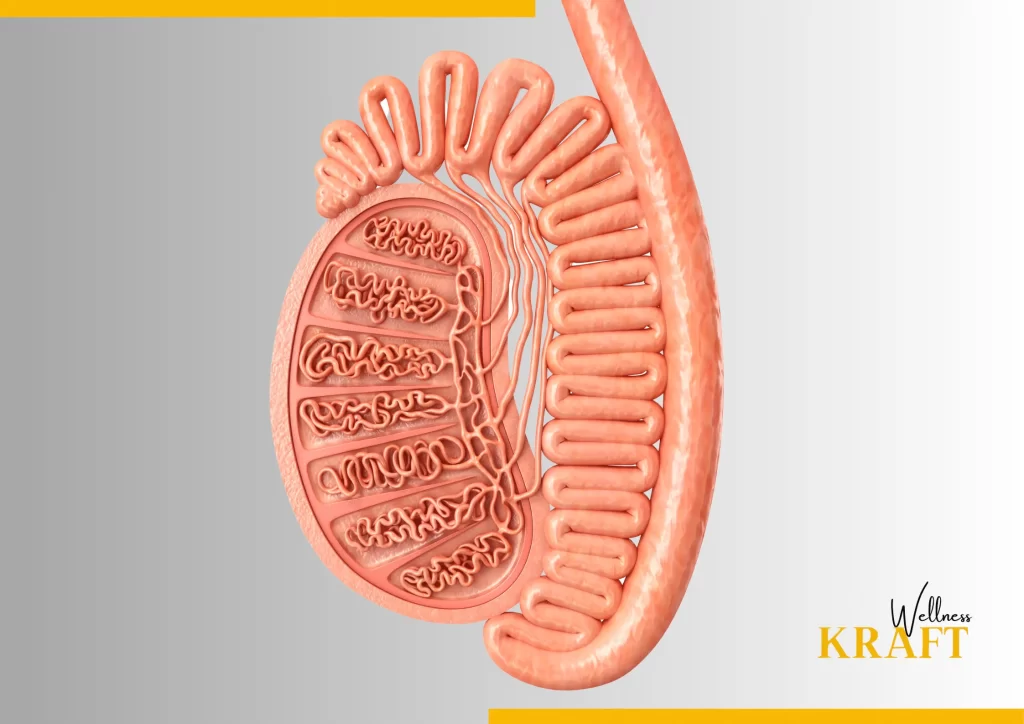
The testes are a pair of oval-shaped glands located in the scrotum, which is the pouch of skin located outside the body that houses the testes. The testes are responsible for the production and secretion of testosterone, as well as the production of sperm.
The testes are composed of several structures, including the seminiferous tubules, which are responsible for sperm production, and the Leydig cells, which produce testosterone. Blood vessels, lymphatic vessels, and nerves also run through the testes.
The Hypothalamic-Pituitary-Gonadal Axis
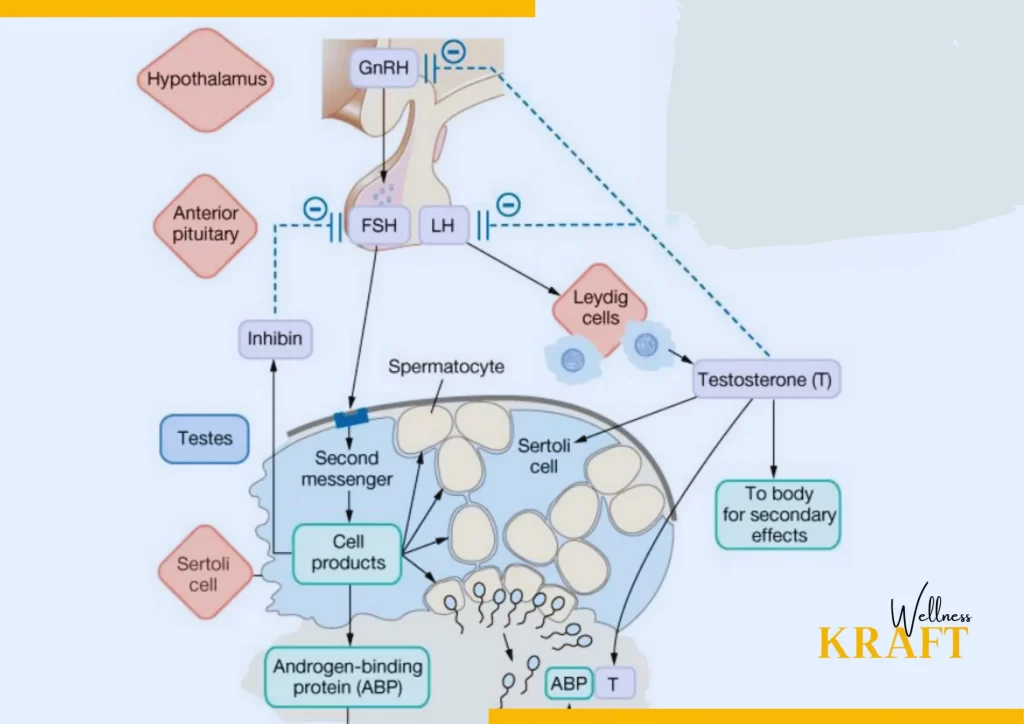
The hypothalamic-pituitary-gonadal (HPG) axis is the hormonal system that regulates testosterone production. The hypothalamus, located in the brain, produces gonadotropin-releasing hormone (GnRH), which stimulates the pituitary gland to produce luteinizing hormone (LH) and follicle-stimulating hormone (FSH).
LH acts on the Leydig cells in the testes to stimulate the production and secretion of testosterone, while FSH acts on the Sertoli cells in the testes to support spermatogenesis.
Factors that Affect Testosterone Production and Regulation
Age:
It’s levels tend to decline gradually with age, starting around age 30.
Medical conditions:
Certain medical conditions, such as hypogonadism, diabetes, and obesity, can impact it’s production and regulation.
Injuries:
Injuries to the testes or other organs in the HPG axis, such as the hypothalamus or pituitary gland, can disrupt it’s production.
Medications:
Certain medications, such as opioids and steroids, can affect it’s levels.
Lifestyle factors:
Diet, exercise, and stress can impact it’s production and regulation. A diet high in saturated fat and low in fibre may negatively impact it’s levels, while regular exercise and adequate sleep can help to support healthy production.
Effects on the Male Body
Physical changes during puberty:
Testosterone is responsible for the development of male physical characteristics during puberty, such as the growth of facial and body hair, deepening of the voice, and enlargement of the penis and testes.
Maintenance of male sexual function:
It plays a crucial role in maintaining male sexual function, including sex drive, sperm production, and erectile function.
Role in muscle growth and bone density:
It helps to stimulate muscle growth and increase bone density, which is important for overall strength and physical health.
Influence on mood and cognitive function:
It can also have an impact on mood and cognitive function. Low levels of testosterone have been associated with symptoms such as depression, fatigue, and difficulty concentrating.
In addition to these effects, it is also involved in other bodily processes, such as red blood cell production and the regulation of insulin sensitivity.
Low Testosterone
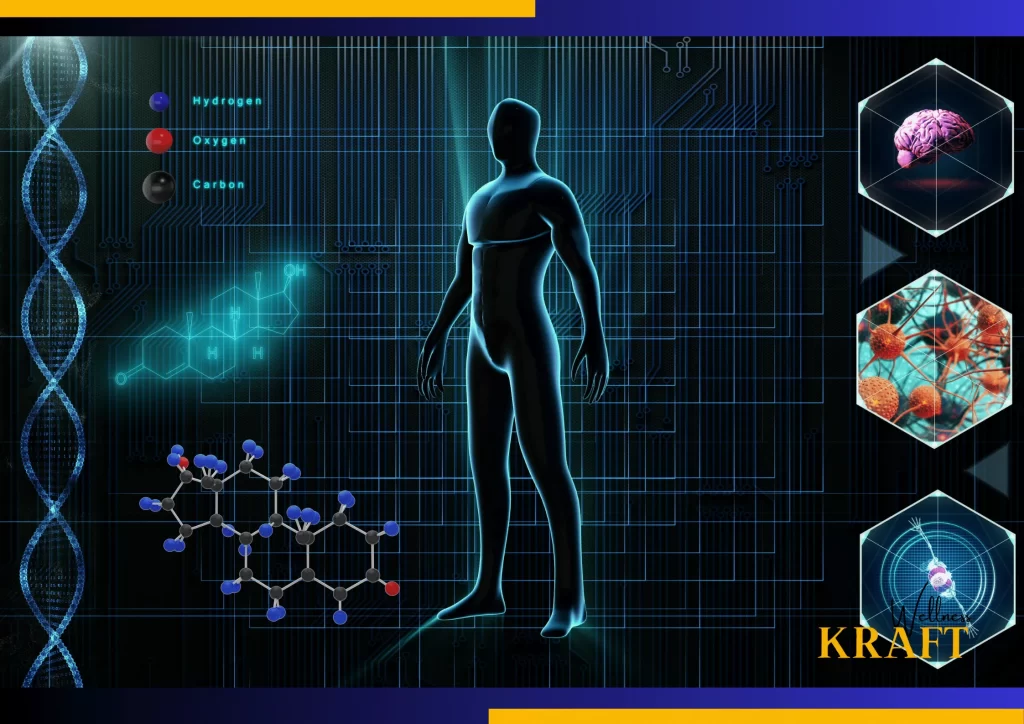
Definition :
It is also known as hypogonadism, is a condition in which the body does not produce enough testosterone. It is estimated to affect up to 38% of men over the age of 45.
Symptoms and consequences :
Symptoms can include decreased sex drive, erectile dysfunction, fatigue, muscle weakness, and depression. Long-term consequences can include a higher risk of osteoporosis, cardiovascular disease, and cognitive decline.
Causes:
It can be caused by a variety of factors, including aging, injury or infection to the testes, medical conditions such as diabetes or obesity, and certain medications.
Diagnosis and treatment options :
Diagnosis of low testosterone typically involves a blood test to measure it’s levels. Treatment options may include lifestyle changes such as weight loss and exercise, TRT, and medications to address underlying medical conditions contributing to low testosterone levels.
It is important for individuals experiencing such symptoms to consult with a healthcare professional to determine the underlying cause and appropriate treatment options.
Supplements and Therapies
Types :
Testosterone supplements and therapies can come in various forms, including injections, patches, gels, pellets, and oral tablets. These methods can either directly introduce testosterone into the body or stimulate the body’s natural production of testosterone.
Benefits and Risks :
TRT is a common form of testosterone supplementation used to treat low testosterone levels. Benefits can include improved sex drive, muscle mass, and bone density. However, there are also potential risks and side effects associated with TRT, such as acne, fluid retention, and an increased risk of prostate cancer.
Other treatments :
In addition to TRT , other treatments may include lifestyle changes such as weight loss and exercise, medications to address underlying medical conditions and natural supplements such as DHEA and zinc.
It is important for individuals considering testosterone supplementation or therapy to discuss the potential benefits and risks with a healthcare professional, and to undergo appropriate monitoring and potential side effects.
Lifestyle Factors that Affect Testosterone
Diet and nutrition:
A balanced and nutrient-dense diet that includes healthy fats, protein, and zinc can support healthy testosterone levels. On the other hand, consuming excessive amounts of processed foods, sugar, and alcohol can negatively impact on it’s production.
Exercise and physical activity:
Regular exercise and physical activity, especially strength training, can help increase it’s levels. However, excessive exercise and overtraining can actually decrease testosterone levels.
Sleep and stress management:
Getting adequate sleep and managing stress levels are important factors in maintaining healthy testosterone levels. Lack of sleep and chronic stress can lead to decreased production.
Environmental toxins and other factors:
Exposure to environmental toxins such as pesticides, plastics, and heavy metals can disrupt hormone production and lead to low testosterone levels. Other factors such as age, medications, and medical conditions can also affect it’s levels.
Research Data
There is a significant amount of research conducted on testosterone each year, with many studies investigating its effects on male health and well-being. Some recent findings include:
-A study published in the Journal of Clinical Endocrinology and Metabolism found that low testosterone levels were associated with an increased risk of cardiovascular disease in men.
-Another study published in the Journal of Urology found that testosterone therapy improved erectile function in men with low testosterone levels and erectile dysfunction.
-A review article published in the journal Current Opinion in Endocrinology, Diabetes, and Obesity found that exercise and weight loss interventions can increase testosterone levels in obese men with low testosterone.
-A study published in the Journal of Sexual Medicine found that testosterone therapy improved sexual function and satisfaction in women with low testosterone levels who had undergone a hysterectomy.
These are just a few examples of recent research, and there is much more to explore in this field. It’s important to keep in mind that research findings should always be considered in the context of other studies and the broader scientific consensus, and should not be used to make decisions about personal health without consulting a medical professional.
Preventions and Cures
Prevention:
-Maintaining a healthy weight through regular exercise and a balanced diet.
-Smoking and heavy alcohol usage should be avoided.
-Managing stress levels through relaxation techniques such as meditation or deep breathing exercises.
-Avoiding exposure to environmental toxins and pollutants.
Treatment:
-TRT, which can be administered in the form of injections, patches, gels, or pellets
-Lifestyle changes such as increasing physical activity, improving sleep quality, and reducing stress
-Medications to treat underlying conditions that may be contributing to low testosterone levels, such as diabetes or hypothyroidism
-Surgery to correct anatomical issues that may be affecting it’s production, such as removing a testicular tumor.
It’s important to note that the most appropriate prevention or treatment option will depend on the individual and their specific circumstances and should be determined in consultation with a healthcare professional. Additionally, some treatments may carry potential risks or side effects, so it’s important to discuss these with a doctor before starting any new treatment regimen.
Concluding Thoughts
In summary, testosterone is a critical hormone that plays a vital role in male health and well-being. It is produced in the testes and regulated by the hypothalamic-pituitary-gonadal axis. Factors such as age, lifestyle, and medical conditions can impact testosterone levels.
It has a wide range of effects on the male body, including physical changes during puberty, maintenance of male sexual function, muscle growth, and bone density, and influence on mood and cognitive function. Low testosterone levels can lead to a range of symptoms and consequences, and diagnosis and treatment options are available to address this issue.Lifestyle factors such as diet, exercise, sleep, and stress management can also impact testosterone levels and overall health.
As noted in a Wellness Kraft article, lifestyle factors such as diet, exercise, and sleep play a crucial role in maintaining healthy testosterone levels.
Key Takeaways
1.Testosterone is a critical hormone that plays a vital role in male health and well-being.
2.It is produced in the testes and regulated by the hypothalamic-pituitary-gonadal axis.
3.Factors such as age, lifestyle, and medical conditions can impact it’s levels.
4.It has a wide range of effects on the male body, including physical changes during puberty, maintenance of male sexual function, muscle growth, and bone density, and influence on mood and cognitive function.
5.Low testosterone levels can lead to a range of symptoms and consequences, and diagnosis and treatment options are available to address this issue.
6.Testosterone supplementation and therapies can be effective in treating low testosterone levels but also come with potential risks and side effects.
7.Lifestyle factors such as diet, exercise, sleep, and stress management can also impact testosterone levels and overall health.
8.Future directions in testosterone research and treatment will continue to focus on identifying new treatment options and improving the safety and efficacy of existing therapies.
FAQs
1.What is the function of testosterone in the body?
It plays a critical role in the development and maintenance of male sexual characteristics, as well as in promoting muscle growth, bone density, and mood regulation.
2.What are the signs of a low testosterone level?
Symptoms of low testosterone can include reduced sex drive, erectile dysfunction, decreased muscle mass, fatigue, depression, and reduced bone density.
3.What causes low testosterone? How is it diagnosed ?
It can be caused by a variety of factors, including aging, certain medical conditions, lifestyle factors, and medications. It can be diagnosed through a blood test.
4.What are the possibilities for treating low testosterone?
Treatment options may include testosterone replacement therapy, lifestyle changes, medications, and surgery.
5.What are the potential risks and side effects of testosterone replacement therapy?
Potential risks and side effects can include acne, breast enlargement, prostate enlargement, sleep apnea, and an increased risk of blood clots and stroke.
6.Can testosterone therapy increase the risk of prostate cancer?
There is some evidence to suggest that it may increase the risk of prostate cancer, although more research is needed to fully understand the relationship.
7.Is it possible to naturally boost testosterone levels?
There are some lifestyle factors that may help naturally boost the levels, such as regular exercise, a healthy diet, and stress management techniques. However, these methods may not be effective for everyone and should be discussed with a healthcare professional.



